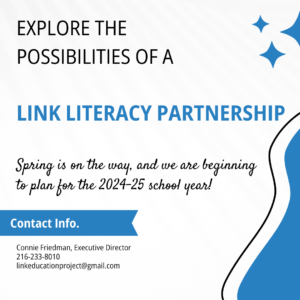If you ask people why they’re reading, what kind of responses would you expect? Typically, you’d hear: for enjoyment, to learn about a topic, to find out how to do something. In other words, people read for fun, for information and for understanding.
If we ask students in school why they’re reading, shouldn’t we expect the same responses?
A colleague and I recently interviewed a group of fifth graders about their reading, using the Fountas & Pinnell (2000) “Reading Interview.” It’s one of my favorites, because of the rich information you get when you sit down with a student and ask his or her thoughts about reading. After we each had interviewed about five students, we took a break to compare notes. We noticed a disturbing pattern in the interviews: these kids were not reading for meaning.
When asked, “Why do people read?” students responded that people read solely for the purpose of becoming better readers. To questions such as, “What have you learned from reading?” or “What advice would you give students in this room to help them read well?” students spoke only of decoding. What they “learned” through reading was not information about snakes or famous athletes or how to do the perfect cartwheel. What they “learned” was how to break words into smaller pieces so they could figure them out. The “advice” they would give to classmates was not a suggestion for a good book or keeping a response journal, but sounding out words.
Is this what we’re teaching them?
If this were a group of first or even second graders, still learning to read, this would not have been so surprising, but I know I sure didn’t expect it from experienced fifth grade readers!
To be fair, the class with which we were working had already been identified as “struggling readers.” Meaning, they were reading below grade level expectations, scored lower than their peers on standardized assessments, and had difficulty completing assignments that involved responding to text. The teacher, new to fifth grade, was open to suggestions as to how to reach her students and support stronger reading habits. And so we decided to interview them, to learn how they felt about reading and what kinds of reading they might like to do.
I was expecting kids who might have trouble identifying what they liked to read, or who had trouble finding books that were both at their level and interesting to them. (This, as we all know, is problematic at this age.) I was not expecting kids who didn’t even know that he or she read because it was fun or because they wanted to learn something.
So, what does it mean? Well, of course we don’t know for sure, but it certainly raises questions about how we teach struggling readers. Are we focusing on the how at the expense of the why? Is this deficit approach common for teachers who work with kids reading below grade level? Why are we not talking about comprehension? And why aren’t we having conversations that spark the joy we can have as readers? Do we think kids who can’t read well can’t understand?
I don’t have answers yet. Obviously we’ll need to collect additional information. But I do know that our focus is going to be comprehension – reading aloud and thinking aloud so students see that a piece of text has meaning. I know that I won’t be throwing them a book and asking them questions about it without teaching them how to actually engage with the texts they read. I foresee lots of modeling, lots of shared reading, and lots and lots of discussion.
Otherwise, I can’t really call my students readers. They haven’t “cracked the code.” Knowing that letters have sounds and that, when put together they form words isn’t enough. That’s not reading.
We read for enjoyment, for information, for learning. We read for meaning.







Leave a Reply